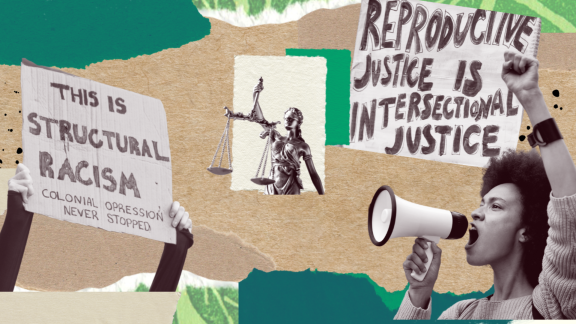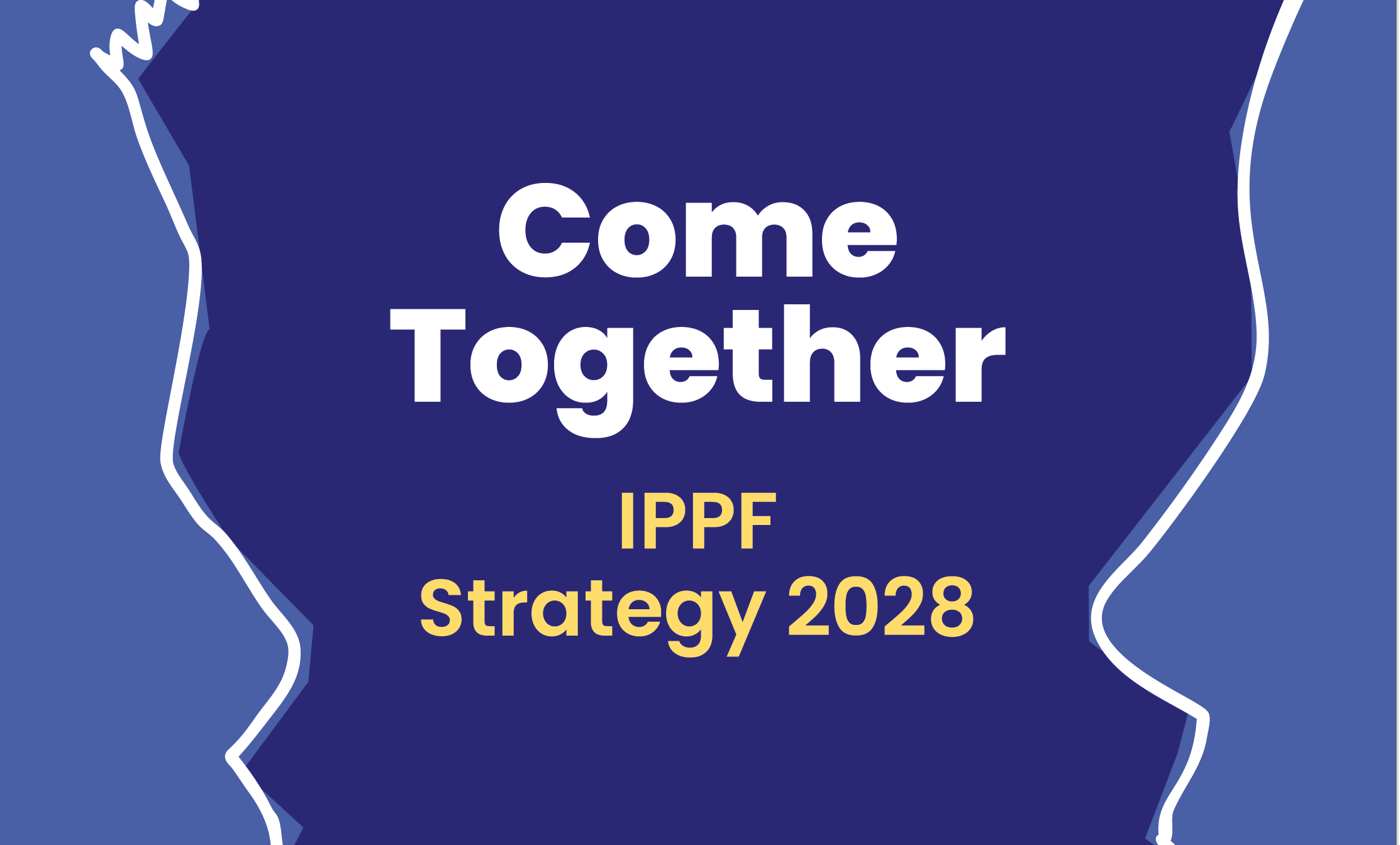SisterSong defines Reproductive Justice as "the human right to maintain personal bodily autonomy, have children, not have children, and parent the children we have in safe and sustainable communities."
The term was coined in 1994 by a network of Black women in Chicago, USA, before the International Conference on Population and Development in Cairo. These women felt that the women’s rights movement at the time was largely white, middle class and did not represent intersectional identities or social-economic factors such as race, class or wealth. The homogeneity of the movement was a key obstacle to reproductive freedom for people of colour and other marginalized groups.
We all know that Black women and women of colour have always been on the frontline fighting for reproductive justice. This is partly a result of the fact that Black women in the United States are more likely to die during childbirth than any other race, as well as the fact that globally, Indigenous women and girls are significantly more likely to be victims of sexual violence than non-Indigenous women and girls.
But it’s only now that large organizations are realising and willing to speak about sexual and reproductive health not as a choice for the privileged, but as a freedom and a human right linked to social justice for all.
when

This vicious cycle of injustice and inequality is one we see repeated globally in many forms. It is one we must start to tackle head on by getting to the roots of these issues in order for all people to have access to healthcare and social justice.

We don’t live single issue lives. We don’t have the privilege of being able to ignore our intersections, which as the Lancet (2022) points out, include caste, ethnicity, indigeneity, migratory status, race, religion, skin colour and identity, among others.
But what has caused this inequality in access to reproductive justice for Black, Indigenous and women of colour? A number of things; medical racism, the wealth gap, lack of access to healthcare due to disparities and complexities of healthcare coverage, as well as higher rates of underlying medical conditions due to existing social and economic disparities such as unfit housing and food insecurity. There is also little or no access to justice or protection within the justice system for many in these groups.
This vicious cycle of injustice and inequality is one we see repeated globally in many forms. It is one we must start to tackle head on by getting to the roots of these issues in order for all people to have access to the healthcare and social justice they need and deserve.
When we talk about reproductive justice, we must remain true to the ethos behind this term. We cannot ignore the systemic issues that create deadly barriers to individuals who want to exercise their human rights and access safe, affordable and quality healthcare.
I lead the work on IPPF’s Programme of Action on anti-racism, which seeks to find ways of learning and unlearning oppressive ways of working. We’ve been on this journey for two years now, but we recognize that this journey is long overdue.
At last year’s General Assembly in November, IPPF committed to upscaling this work dramatically. Anti-racism and decolonisation were incorporated into the Federation’s new 6-year strategy, with the requisite resources including people and financial. But as an organisation, we recognise that we can also do some of the smaller things to ensure we are making our anti-racism journey authentic and sustainable. These include:
- Recognize, respect and credit the work of global intersectional feminist movements who for years have been doing the work to create linkages of social justice and reproductive justice through a human rights lens.
- Adopt language that reflects the realities and lived experiences of the people we serve.
- Listen to those with the lived experience of injustice and raise their voices.
- Humbly acknowledge how and where privilege has prevented some people from facing the same barriers as others
- No more buzzwords without meaningful action – otherwise, we are merely virtue signalling.
- Be ready to unlearn; it will be painful, uncomfortable and at times feel confrontational. But without this process, we cannot dismantle systemic issues like racism that hold us back from achieving social justice.
- No more Global North v Global South language – stop defining people by their geographical location.
- Leadership at organizations should reflect the diversity of people.
This World Day of Social Justice – let’s put the emphasis on acknowledging the power imbalances and privilege not only for our organisations but for our individual selves. Let’s ask the hard questions and be ready to be uncomfortable with the difficult answers.
Because if this work is not uncomfortable – it’s not working.












